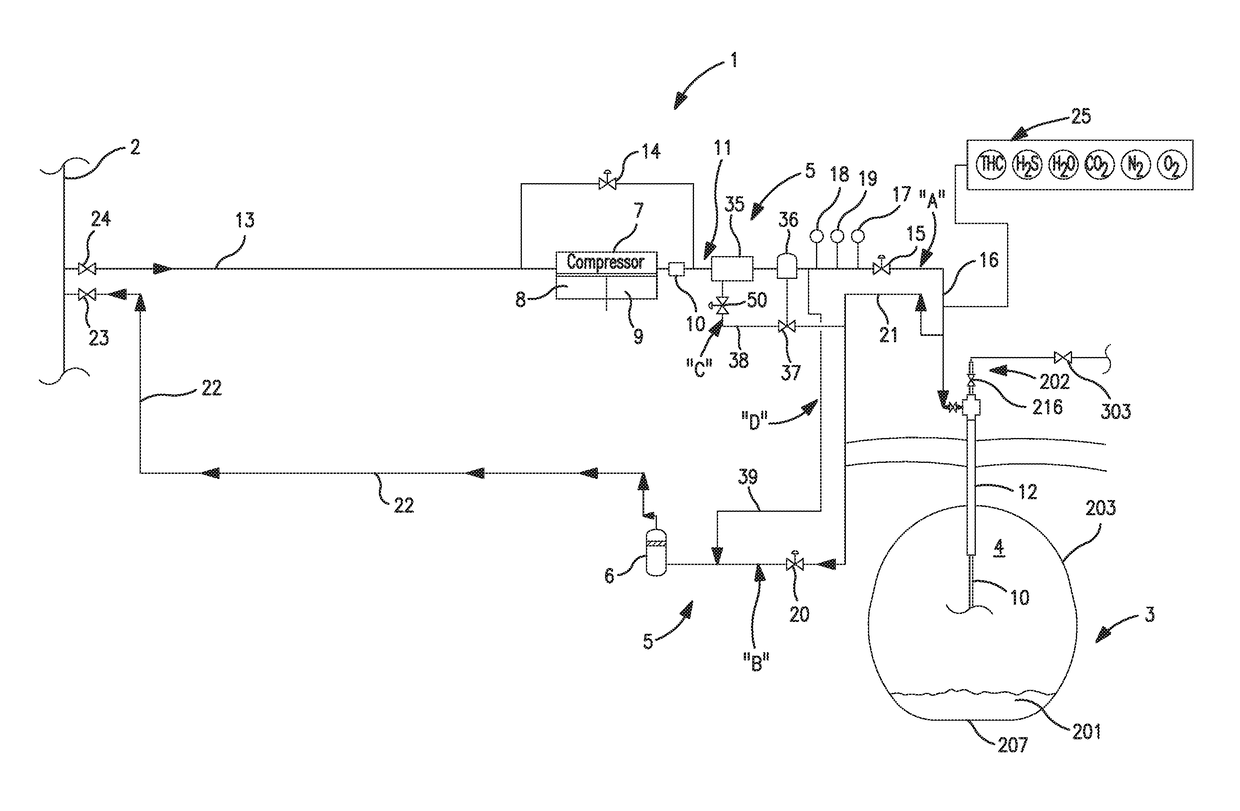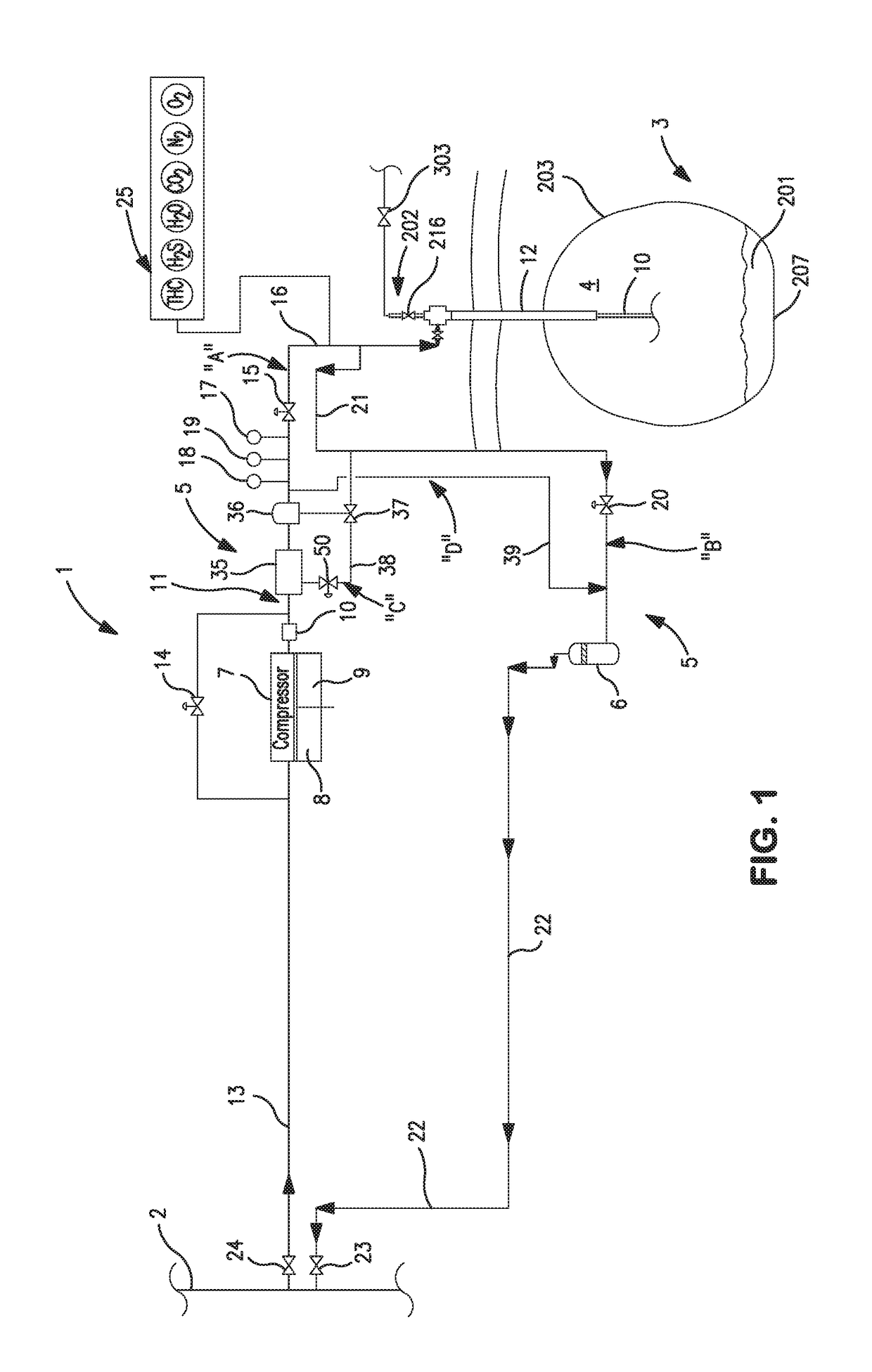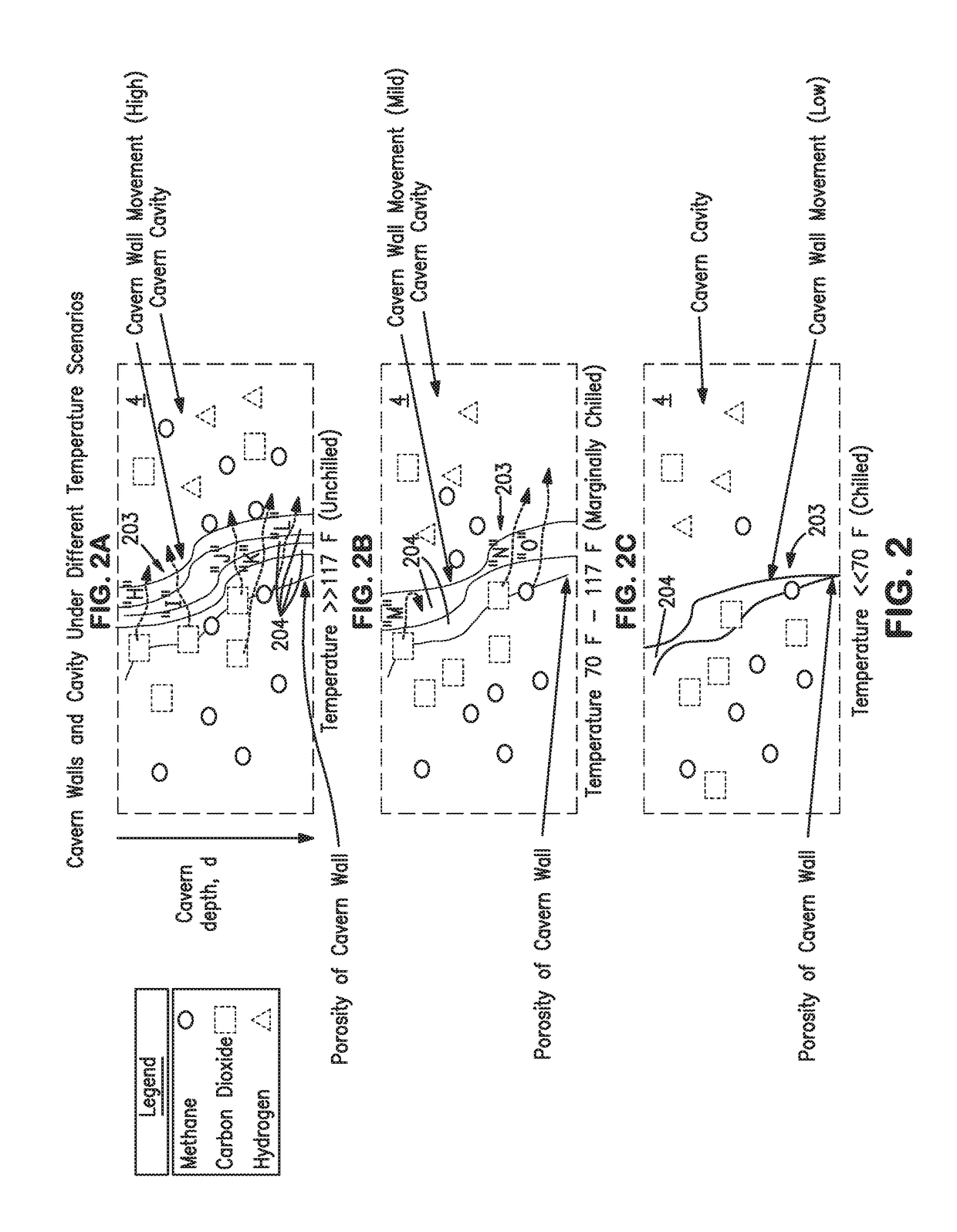System and method for treating hydrogen to be stored in a salt cavern and supplying therefrom
a technology of salt cavern and hydrogen storage, which is applied in the direction of separation processes, mechanical equipment, transportation and packaging, etc., can solve the problems of affecting the quality of salt cavern, so as to achieve the effect of reducing the intrusion of one or more contaminants and supplying hydrogen
- Summary
- Abstract
- Description
- Claims
- Application Information
AI Technical Summary
Benefits of technology
Problems solved by technology
Method used
Image
Examples
Embodiment Construction
[0023]As used herein, all concentrations are expressed as volumetric percentages. The disclosure is set out herein in various embodiments and with reference to various aspects and features of the invention. The detailed description contemplates the features, aspects and embodiments in various permutations and combinations, as being within the scope of the disclosure. The disclosure may therefore be specified as comprising, consisting or consisting essentially of, any of such combinations and permutations of these specific features, aspects, and embodiments, or a selected one or ones thereof.
[0024]It should be understood that the term “suppress” as used herein means a reduction, inhibition or delay in the onset of infiltration by one or more contaminants released from the salt walls into the interior cavity of the salt cavern. It should be understood that the term “chilled” as used herein means a cooling of hydrogen product removed from a hydrogen pipeline in which the cooling occurs...
PUM
| Property | Measurement | Unit |
|---|---|---|
| temperature | aaaaa | aaaaa |
| temperature | aaaaa | aaaaa |
| concentration | aaaaa | aaaaa |
Abstract
Description
Claims
Application Information
 Login to View More
Login to View More - R&D
- Intellectual Property
- Life Sciences
- Materials
- Tech Scout
- Unparalleled Data Quality
- Higher Quality Content
- 60% Fewer Hallucinations
Browse by: Latest US Patents, China's latest patents, Technical Efficacy Thesaurus, Application Domain, Technology Topic, Popular Technical Reports.
© 2025 PatSnap. All rights reserved.Legal|Privacy policy|Modern Slavery Act Transparency Statement|Sitemap|About US| Contact US: help@patsnap.com



